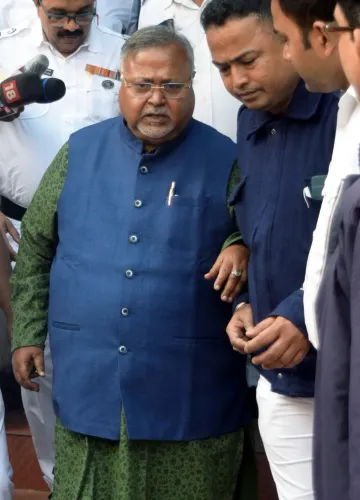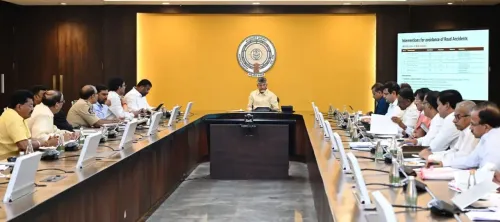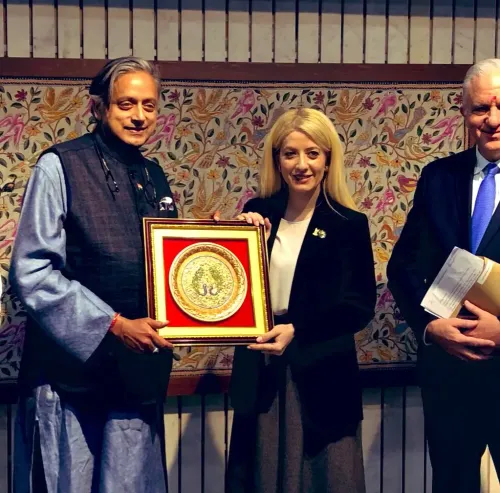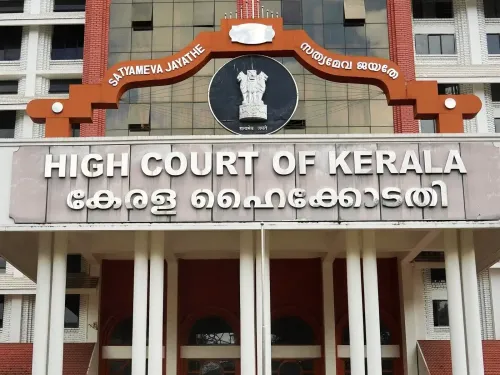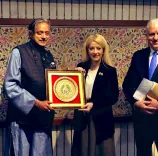Will India's economy achieve an impressive 6.6% growth in FY26 despite external challenges?

Synopsis
Key Takeaways
- India's projected GDP growth: 6.6%
- Importance of domestic conditions
- Risks include geoeconomic fragmentation
- Fiscal consolidation is essential
- Continued reforms will support growth
Washington, Nov 26 (NationPress) In light of external challenges, India's economy is projected to demonstrate a strong growth rate of 6.6% in FY26. This assessment is based on a report released by the IMF on Wednesday, which highlights that favorable domestic conditions will support this growth.
Assuming a sustained 50 percent tariff from the US, the country's real GDP is expected to grow at 6.6 percent for FY2025-26, followed by a slight moderation to 6.2 percent in FY2026-27.
India has shown impressive economic performance, with a growth rate of 6.5 percent in FY2024-25 and a remarkable 7.8 percent expansion in the first quarter of FY2025/26. Headline inflation has significantly decreased, largely due to stable food prices. The financial and corporate sectors remain robust, buoyed by healthy capital reserves and historically low non-performing assets. Fiscal consolidation has progressed, and the current account deficit has been managed effectively, thanks to strong service exports.
The report emphasizes that reforms in the goods and services tax (GST) and the consequent reduction in effective rates are expected to mitigate the negative effects of tariffs. Headline inflation is anticipated to stay manageable, attributed to the one-off impacts of the GST reform and continued favorable food prices. Looking forward, India's ambition to evolve into an advanced economy can be realized through comprehensive structural reforms that facilitate higher growth potential.
However, there are notable short-term risks to the economic outlook. On a positive note, new trade agreements and accelerated implementation of structural reforms could enhance exports, private investments, and job creation. Conversely, escalating geoeconomic fragmentation risks tighter financial conditions, increased input costs, and a downturn in trade, foreign direct investment, and economic growth. Unpredictable weather events could adversely affect agricultural yields, reduce rural consumption, and trigger inflationary pressures.
The IMF Executive Directors commended India's robust economic performance and resilience, attributing it to prudent macroeconomic policies and reforms. Given the prevailing uncertainties, they urged the continuation of sound policies and emphasized that rapid execution of structural reforms is vital for maintaining stability and supporting India's goal of becoming an advanced economy.
The IMF aligns with the government's fiscal consolidation plans for the year, noting that achieving the fiscal deficit target will necessitate disciplined spending. While they appreciated the recent simplification of the GST, they stressed the importance of closely monitoring its fiscal impact.
Additionally, the IMF endorsed the RBI’s data-driven approach to monetary policy, suggesting that if tariffs remain at current levels, there may be room for further monetary easing in light of manageable inflation dynamics. They broadly recommend ongoing efforts to improve monetary transmission and enhance exchange rate flexibility to better equip the Indian economy to handle external shocks, with interventions to address market volatility in line with the Integrated Policy Framework.

